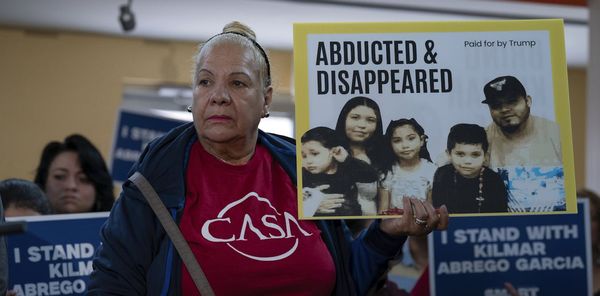
I’m moving away to another country for university next year and my mum wants to put a tracker on my phone so she can know where I am and make sure I’m OK. I don’t want her to do this, not because I have anything to hide, but because I’d like to have some independence and privacy.
She’s never been a particularly strict parent but she’s insistent on this one thing. But if I tell her, she might think I’m hiding something, or it might upset her as it may be one of the only ways she feels she could be a part of my life when I go – which isn’t true, because I plan to keep in good contact.
I’m not sure how to tell her I don’t want her tracking me without upsetting her. What should I do?
Eleanor say: For what it’s worth, I share your preference here. Part of what it is to have independence from someone is for there to be information they don’t have, and for that not to violate an expectation. Somewhere between childhood and adulthood, it has to become slightly weird for the parent to say: “You didn’t tell me you were going there/seeing them/having that medical test.”
But I suspect your location is just one face of this shift in your relationship. It sounds like your mum will miss you terribly and she might have a hard time with this transition.
You have to be a little careful with how much that weighs on you. If being separate from her starts to feel of itself like a rejection or betrayal, it will be very hard to do what is your most important job at this moment in life: figure out what your own adult “inner voice” sounds like.
You’ll face the structure of your current problem again and again through life: someone you care about will feel sad or pushed away if you make a particular choice, even though that’s the one you truthfully want to make. Plenty of people much older than you get into terrible tangles because they’re so unable to tolerate that consequence, they make choices only by asking what will cause others the least pain. This compromises your ability to make decisions as yourself instead of as the aggregate of other people’s hurts and wants.
This is a good moment to practise tolerating that discomfort: “Mama, I love you, but I’m just not comfortable with this, I’m sorry.” You could offer an alternative that answers her safety concerns without giving round-the-clock information, like a watch with an alert button you could use in distress.
It’s especially hard to do this when the person we hurt isn’t just a nuisance we want to keep at arm’s length. When we genuinely love them, it’s easy for a quasi-angel on the shoulder to say: “Why not just do this nice thing?”
The answer is, it doesn’t do your relationship any favours. You are going to grow up. This can be poignant for a parent, and it’s natural to miss the time when you were smaller, when you needed them more. But minor ways of making your present-day relationship resemble childhood will add up and will start to feel more and more like forcing an adult-child relationship when you’re both adults. You’ll feel it, they’ll feel it, it’ll suck for everyone.
There is a different form of parent-child closeness on the other side of this moment. It’s more like a relationship between equals, with the chance to “remeet” you as the adult you become. Yes, there is grief in losing the relationship with the child version of you. But she can’t get that second kind of closeness without letting go of the first. The more concessions you make to staying in the child space, the more you delay the opportunity for that more grown-up closeness.
Growing up and leaving home is not an unkindness, even though it might cause pain. This is a chance to practise tolerating that feeling. Give her your love, your attention, your kindness, your time. But you don’t need to give her your location.
* * *
Ask us a question
Do you have a conflict, crossroads or dilemma you need help with? Eleanor Gordon-Smith will help you think through life’s questions and puzzles, big and small. Your questions will be kept anonymous.







